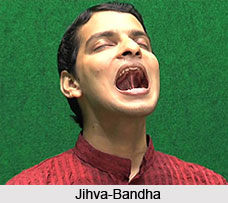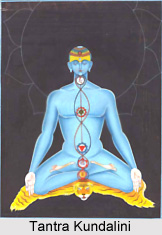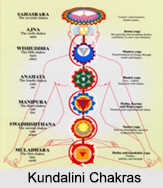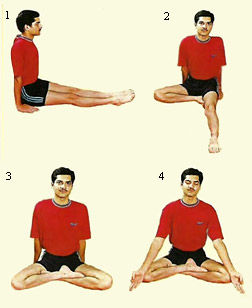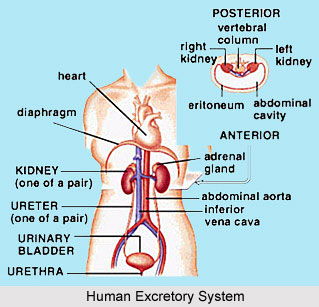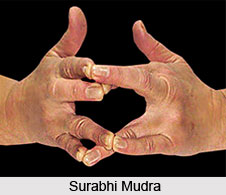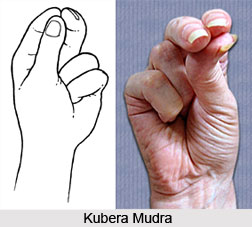 According to klesamulah karmasayah drsta adrsta janma vedanlyah sutra, the botherations, the distresses or the wrong deeds that one commits is bound to have its after effects in the future life. The several accumulations of past deeds render a lasting impression on the present life, governing their actions accordingly. Whatever one has delivered sinfulness in their previous affairs are regarded the root of the afflictions. Karma, or the consequences of causal effects may or may not surface in the present life. However one is never free from the malevolent senses of lust, ravenousness, jealousy, or rage, and these are the basic faults, which are, must to lead one to the path of destruction.
According to klesamulah karmasayah drsta adrsta janma vedanlyah sutra, the botherations, the distresses or the wrong deeds that one commits is bound to have its after effects in the future life. The several accumulations of past deeds render a lasting impression on the present life, governing their actions accordingly. Whatever one has delivered sinfulness in their previous affairs are regarded the root of the afflictions. Karma, or the consequences of causal effects may or may not surface in the present life. However one is never free from the malevolent senses of lust, ravenousness, jealousy, or rage, and these are the basic faults, which are, must to lead one to the path of destruction.
klesa affliction, pain, distress, sorrow
mulah root, origin, source
karma action, deed, work, performance
asayah resting place, abode, asylum, reservoir
drsfa visible, capable of being seen, perceivable
adrsta not capable of being seen, unperceivable, unobservable, invisible, fate
janma birth, life
vedanlyah to be known, to be experienced
The accumulated imprints of past lives, rooted in afflictions, will be experienced in present and future lives.
The impresses or residual impression`s of one`s actions, whether good or bad, bothers one according to their degree of merit and demerit. They are the seed of future distresses and pleasures which one experiences both in this life and in lives to come.
Past actions are the seeds of adversity, which in turn brings about other actions, necessitating further lives, or reincarnation. This is known as karma, or the universal law of cause and effect. Afflictions and actions intermix and interact, and the cycles of birth and death roll on. Actions rooted in desire, greed, anger, lust, pride and malevolence invite adversity, just as those which are free from the spokes of the wheel of desire lead towards the state of ecstasy. The effects of both types of action may be visible or invisible, manifest or latent; they may surface in this life or in future lives. According to Sri Hariharananda `one`s reservoir of karma is analogous to a seed; desire, greed and lust are shoots from the field; life is the plant and life`s pain and pleasure are the flowers and fruits`. Through the practices of kriyayoga - tapas, svadhyaya and Tsvara pranidhana - one tries to obliterate in this life their residual karma. This is the accumulated fruit of one`s actions, gathered over the past lives and in this life, in the form of visible and invisible or predetermined effects which one regards as destiny or fate.
Hindu lore is full of instances of the work of karmasaya; there is Nandisvara who became the vehicle of Lord Siva, Visvamitra, a warrior king who became a pure and true Brahmin, Urvasi, a nymph who became a creeper; and Nahusa, king of heaven who became a snake.
Nahusa, a king of Bharata (India) was an honest king. When Lord Indra, King of heaven, killed the demon Vrtra, he had to observe penitence for having killed a Brahmin, leaving heaven temporarily without its king. For his virtuousness Nahusa was invited by the Gods to rule heaven in Indra`s position until his return from penitence. Nahusa agreed, but with reluctance. But while there, he fell in love with Sachi, Indra`s wife. Nahusa made it known to Sachi that as Lord of heaven he considered he had a right to share her favours. To defend herself, Sachi asked her preceptor, Brhaspati, how she should shield herself. On his advice, she acceded on one condition; Nahusa was to come to their rendezvous borne on a most extraordinary palanquin, carried by the seven sages (saptarsis - the constellation known as the Great Bear). Lust overruled his reflective thoughts and at once he called for the seven sages and ordered them to bear his palanquin to Sachi`s house. In his infatuation and anxiety to reach her speedily, Nahusa ordered them to move fast. The Sanskrit word for `move fast` is sarpa which also means `snake`. He lost his self-control and kicked sage Agastya. Agastya lost his temper and in his anger damned the king with the word sarpobhava meaning `become a snake`.
Nahusa fell back to earth in the form of a serpent. He remained a snake until Yudhisthira washed off his karma. Nahusa had enlaced himself around Bhima, son of Pandu from Mahabharata, promising his release only if he answered all his questions. Bhima failed to do so, but was rescued by Yudhisthira, his elder brother, who had gone out to look for him. Yudhisthira was appalled to discover Bhima within the volutes of a large snake, but the serpent gave his word to set Bhima free unscathed, in the condition that all his questions were answered. This Yudhisthira willingly fulfilled and retrieved Bhima. Soon the snake returned to a human form, realised his folly and resumed his penitence.
There is another instance of a good karma which elevated a young bull named Nandi to reach God. Nandi, the child of Kamadhenu, the cow of plentitude who grants every desire, reached the highest state of emancipation through sadhana to become the attendee of Lord Siva on which He rides.



